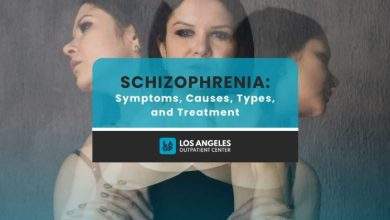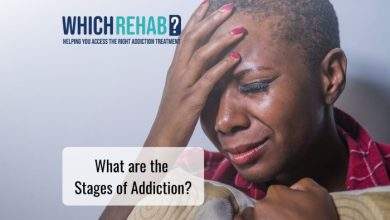
When it comes to drug addiction, early detection can truly save lives. Addiction doesn’t always look how we expect it to. It can hide behind excuses, changing moods, or shifting behaviors. Whether you’re concerned about a loved one or questioning your own habits, knowing the signs and symptoms of drug addiction is essential. The earlier addiction is identified, the greater the chance for recovery, healing, and long-term wellness.
In this blog, we’ll cover the key behavioral, physical, and emotional symptoms of substance use disorder, offering clear guidance so you can take the right steps forward. No judgment, just support and helpful insight.
What Is Drug Addiction?
Drug addiction is a chronic, relapsing condition where a person compulsively seeks and uses drugs, despite the negative impact on their life. It affects brain function and behavior, making it difficult to control or stop drug use without help. Over time, a person’s body and mind become dependent on the substance, leading to a range of serious issues, from health deterioration to strained relationships.
Addiction doesn’t always happen quickly. It often develops over time, starting with experimentation, moving to regular use, and eventually becoming a dependency. Recognizing the signs early gives someone the best chance to seek treatment before things spiral out of control.
Behavioral Signs of Drug Addiction
One of the first red flags of drug addiction is a change in behavior. These changes can be subtle at first but often grow more noticeable with time.
Secretive or Isolated Behavior
People struggling with drug addiction often begin to withdraw from family and friends. They may lie about where they’ve been or who they’re with. Isolation becomes a way to hide their habits, avoid confrontation, or prevent others from discovering the truth.
Loss of Interest in Daily Activities
Hobbies, school, work, or family responsibilities may suddenly seem unimportant. Someone who was once highly engaged might lose motivation, skip commitments, or seem emotionally detached.
Risky Behavior and Poor Judgment
Addiction can impair judgment and increase risk-taking. Driving under the influence, unsafe sexual activity, or criminal actions like theft may occur. These behaviors often result in legal or personal consequences.
Unexplained Financial Problems
Many individuals with drug dependency will begin to struggle with money. They may borrow frequently, sell possessions, or even steal to fund their habit.
Physical Signs of Drug Addiction
Changes in the body often go hand-in-hand with substance abuse. Some signs are specific to the drug used, while others are common across most types of drugs.
Bloodshot Eyes or Dilated Pupils
Eyes often reflect a person’s drug use. Red, glassy eyes, dilated or constricted pupils, or a blank stare can signal frequent use of substances like marijuana, opioids, or stimulants.
Changes in Sleep Patterns
Insomnia, frequent drowsiness, or oversleeping are common in individuals dealing with addiction. Some drugs keep users awake for extended periods, while others result in extreme fatigue.
Poor Hygiene and Appearance
Those affected by drug addiction may start to neglect personal hygiene. You may notice dirty clothing, unbrushed hair, or a lack of care about their appearance.
Sudden Weight Fluctuations
Depending on the drug, weight can change quickly. Stimulants often lead to rapid weight loss due to reduced appetite. On the other hand, certain depressants may cause weight gain.
Track Marks or Nosebleeds
Injection drug users may have visible needle marks, bruises, or sores, especially on arms or legs. If drugs are snorted, frequent nosebleeds or nasal damage may be present.
Emotional and Psychological Symptoms
Addiction doesn’t just affect the body — it deeply impacts mental and emotional well-being too.
Mood Swings and Irritability
Frequent mood swings, anger outbursts, or unexplained irritability are common emotional symptoms of drug abuse. Emotional responses become unpredictable and sometimes extreme.
Anxiety and Depression
Prolonged drug use often disrupts natural brain chemistry, leading to serious emotional changes. Many people experience anxiety, depression, or even suicidal thoughts.
Paranoia or Hallucinations
Certain drugs, especially stimulants or hallucinogens, can cause paranoia, delusions, or hallucinations. These symptoms may persist even after the drug wears off, especially with chronic use.
Loss of Focus or Motivation
People with a substance use disorder may struggle to concentrate, set goals, or maintain responsibilities. They might start many projects and leave them unfinished or have trouble staying organized.
Social and Lifestyle Clues
Addiction impacts every area of life, including relationships and social dynamics.
Relationship Problems
Family and friends often notice the changes first. Frequent arguments, lying, broken trust, or distancing from loved ones are all common in households where someone is battling addiction.
Job Loss or Poor Academic Performance
Frequent absences, a drop in productivity, or disciplinary actions at work or school can indicate that something serious is happening behind the scenes. Employers or teachers may express concern or give warnings.
Legal Trouble
Arrests for possession, driving under the influence, or other drug-related charges can be strong indicators of drug addiction. Often, these problems grow worse if not addressed early.
Substance-Specific Symptoms
While many symptoms are common across various substances, some drugs come with their own unique signs:
Opioids (Painkillers, Heroin)
- Slurred speech
- Drowsiness or “nodding off”
- Small, constricted pupils
- Itching or scratching
- Constipation
Cocaine and Methamphetamine
- Extreme energy or talkativeness
- Aggression
- Weight loss
- Enlarged pupils
- Increased heart rate
Marijuana
- Red, bloodshot eyes
- Relaxed or “spaced out” demeanor
- Increased appetite
- Laughter without cause
- Slower reaction time
Prescription Drug Abuse
- Taking higher doses than prescribed
- “Doctor shopping” for multiple prescriptions
- Crushing or snorting pills
- Mixing medications without medical advice
When Should You Seek Help?
If you recognize any combination of these drug addiction symptoms in yourself or someone close to you, it’s time to consider getting professional help. Addiction rarely goes away on its own. Left untreated, it can lead to serious consequences, including overdose or death.
Seeking help doesn’t mean you’re weak — it means you’re strong enough to fight for a better life. Recovery is possible, and it starts with acknowledging that something needs to change.
Treatment Options for Drug Addiction
The path to recovery may look different for everyone, but common options include:
- Detox programs to remove harmful substances from the body
- Inpatient rehabilitation for intensive, structured care
- Outpatient therapy for flexible treatment schedules
- Counseling and behavioral therapy to address emotional and psychological needs
- Support groups, such as Narcotics Anonymous, for community and encouragement
Final Thoughts
Recognizing the signs and symptoms of drug addiction is the first step toward healing — for yourself or someone you care about. Addiction can happen to anyone, but so can recovery. If any of the signs mentioned here sound familiar, don’t wait. Reach out for help, talk to a trusted friend or professional, and take the first step toward a healthier, safer, and more hopeful future.
Help is always available. You are not alone.




